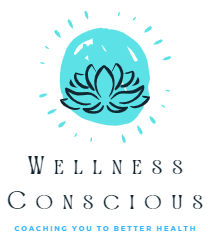
By avoiding these sleep-disrupting foods and making conscious choices about our diet, we can create an environment that supports restful and rejuvenating sleep.
The Importance of Meal Timing for Better Sleep
In addition to the types of foods we consume, the timing of our meals can also impact our sleep quality. By being mindful of when we eat and adjusting to our meal timing, we can optimize our sleep and wake up refreshed and energized. Here’s why meal timing is essential for better sleep.
Avoid Late-Night Eating
1. Consuming a large meal or snacking close to bedtime can strain our digestive system and make it harder to fall asleep. You should avoid eating at least two to three hours before bed to allow your body enough time to digest the food.
Light Dinner, Heavier Breakfast
2. Having a lighter dinner and a heavier breakfast can help regulate our circadian rhythm and promote better sleep. It gives our body enough time to digest food and gives us the necessary energy and nutrients to start the day.
Consistent Meal Times
3. Establishing regular meal times can help regulate our body’s internal clock, known as the circadian rhythm. Eating meals at consistent times each day can help synchronize our sleep-wake cycle and promote better sleep.
Bedtime Snacks
4. If you are hungry before bedtime, opting for a light, sleep-promoting snack can help satisfy your hunger without disrupting sleep. Foods that contain tryptophan, such as a small bowl of warm milk or a handful of nuts, can help promote relaxation and aid in the transition to sleep.
You can optimize your sleep and wake up refreshed and rejuvenated by being mindful of your meal timing and making conscious choices about when and what you eat.
Tips for Improving Sleep Through Diet
Improving our sleep through diet involves making conscious choices and adopting healthy habits that support restful and rejuvenating sleep. Here are some tips to help you optimize your sleep through diet.
Prioritize a Balanced Diet:
1. Aim to consume a diet full of nutrient-dense foods, like fruits, lean proteins, vegetables, and healthy fats. These foods provide the necessary nutrients for optimal sleep and overall well-being.
Incorporate Sleep-Promoting Foods
2. Include foods rich in sleep-promoting nutrients, such as magnesium, zinc, B vitamins, tryptophan, and omega-3 fatty acids. As it can help support the production of sleep-regulating hormones and neurotransmitters.
Limit Caffeine and Sugar Intake
3. Be mindful of caffeine and sugar consumption, especially in the afternoon and evening. Opt for caffeine-free alternatives and choose foods low in added sugars or natural sweeteners.
Avoid Heavy Meals Close to Bedtime
4. Try having your last meal or snack at least two to three hours before bed to ensure proper digestion. Avoid rich, spicy, fatty foods that can cause indigestion and discomfort.
Establish Regular Meal Times
Set consistent daily meal times to regulate your body’s internal clock and promote a healthy sleep-wake cycle.
Create a Bedtime Routine
6. Establish a relaxing routine that includes winding down activities, like reading a book, taking a warm Epsom salt bath, or practicing relaxation techniques. It can signal to your body that it’s time to sleep and help you transition into a restful state.
Limit Alcohol Consumption
7. While alcohol may initially make you tired, it can disrupt sleep and reduce sleep quality. Limit your alcohol intake, particularly close to bedtime.
Stay Hydrated
8. Drink enough water throughout the day to stay hydrated. Dehydration can contribute to sleep disturbances and daytime fatigue.
Consider Natural Sleep Aids
9. If you’re still having trouble sleeping, consider natural sleep aids, such as herbal teas (such as chamomile or valerian root), melatonin supplements, or aromatherapy with calming essential oils.
Thank you for visiting my blog. I hope are enjoying the content and find it helpful. Please share with others.
